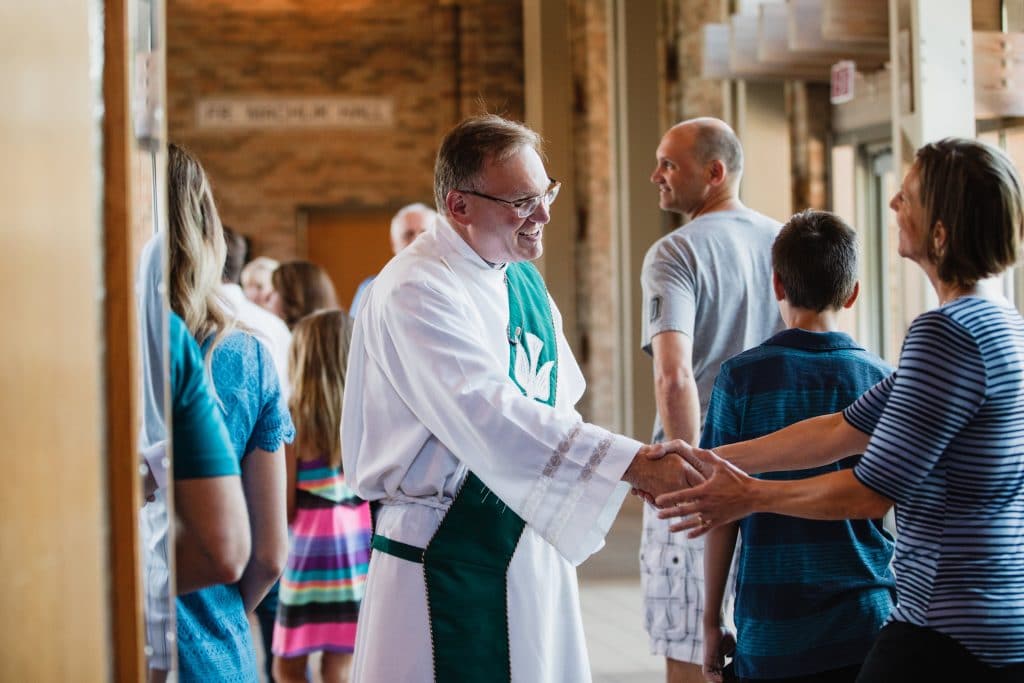What does it mean to be on mission in my parish?
Vocabulary fatigue is a real thing that affects millions of Americans each year. It is the overuse of a word or phrase that drains it of any meaning. When I was in high school, the work “decrepit” was used all the time. Everything someone did not like was referred to as decrepit. After a while, it was used with such variety and frequency that it ceased to mean anything.
Some people in Church feel this way about the word “missionary.” It can become a stand-in for a wide variety of approaches and plans. With this realization, I use the words “on mission” in the article’s title with some trepidation. I do not want readers to hear amorphous filler words. Rather, I hope to convey an attitude which seeks to uncover the original baptismal call of all the faithful.
Over the centuries, “being a missionary” meant leaving one’s home to a far-off land to share the Gospel. This sacrifice was something beautiful and — to use the original meaning of another overused word — truly awesome. There was a proper reverence towards those men and women who so radically gave their lives for Christ. But the “mission” of the Church is to share the good news with every person of every age. Therefore, it is not the portioned-off work of a small group of specialists. Rather, “the obligation of spreading the faith is imposed on every disciple of Christ, according to his state.”[1]
For most of us, this work is done in our families, our workplaces and our neighborhoods. But I want to explore our specific work of “spreading the faith” in our parishes. The key work of the New Evangelization is reaching Catholics who have fallen away from the practice of their faith. In our society, this is especially true of the countless brothers and sisters who are only loosely affiliated with a parish. Perhaps they come to the parish for a wedding or the baptism of a child. Perhaps they are even more loosely connected to the parish and they are only seen at the funeral of a relative or friend, or perhaps they attend Mass a few times a year on Christmas and Easter. We know that many people who call our parishes home have never encountered Jesus in power and given their lives to him.
In many ways, our parishes are the first places for mission. They are the easiest places since we already know the people and they are where we want to bring them!
Here are three ways you can be a missionary when you are at your parish.
Hospitality
Any one person in a parish cannot be responsible for the overall hospitality of a parish. But she can do her part. Christian hospitality is more than clean bathrooms and accessible parking. It is an attitude that realizes the “outsider” is the most important person because Jesus left the 99 to go and search for the one. Therefore, hospitality begins with a readiness to respond to inconvenience or even rudeness with kindness. It involves taking the extra minute to greet someone you do not know with a word, a smile (even behind your mask!) and a heart that seeks to convey God’s love to this individual. No one is too busy, too important or too new to extend Christian hospitality to another. Check out these resourcesfor upping your hospitality game.
Friendship
A common lament I hear from young Catholics is the struggle to find good friends who will help them grow in their relationship with Jesus. The best place to find friends like these are at church! Everyone is looking to make new friends. Often all that is required is taking the first step. If there is another family you meet at church, another single person or another senior, reach out to them and make the offer to get together for coffee, lunch or a game night. I know many people who were evangelized through friendships they struck up at church. One easy way to root the friendship in Christ is to share what you love about being Catholic and then ask the other person what they love about their Catholic faith. You can make a short prayer together (if you are bold enough!) thanking God for these things.
Invitation
Just as building friendships can be a catalyst to a deeper relationship in Christ, an invitation to attend another event together can be an opportunity for tremendous spiritual growth as well. Inviting someone to attend a talk, meet at Mass together or join a small group is a simple act that can have a big impact. An invitation is always a risk of rejection, which can be intimidating. But the risk is infinitesimal compared to the potential. It’s important to have eyes for those who are not already fully engaged in these activities. Part of having a “missionary mindset” is looking to help others who are not already all-in for Christ. Often it is someone who we might not readily think to invite. A great way to do this is to ask Jesus in prayer – especially right after receiving Holy Communion – who he wants you to reach out to … and then do it!
Thinking of yourself as a missionary might be off-putting or intimidating. But the time we’re living in is not one for cowards. Our world is in desperate need of the life-giving power of the Gospel. It has been locked up and leashed by our fears and self-preservation for too long. You were made to be on mission in this time. The best place to start is your own parish.
[1]Lumen Gentium, 17.
